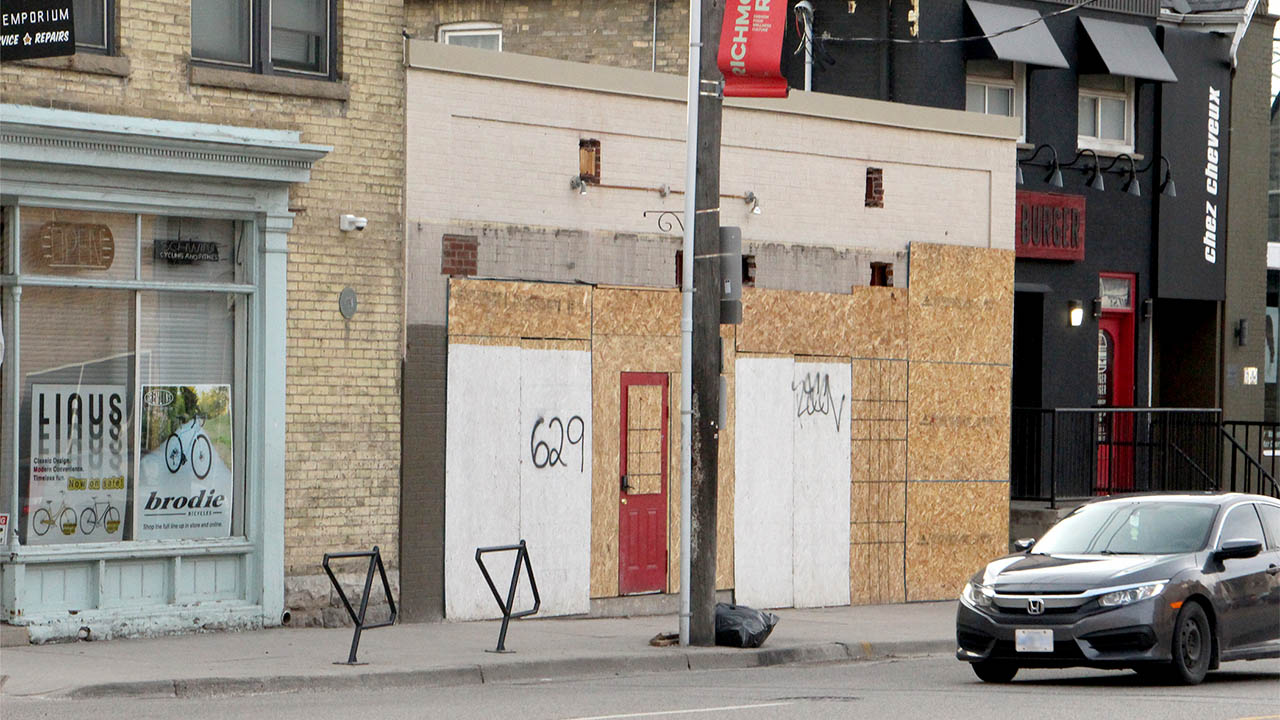Closed for business: Downtown or ghost town?
 CREDIT: FINCH NEVES
CREDIT: FINCH NEVESLondon’s downtown core is seeing businesses close nearly daily. Will London’s downtown become a ghost town?
Last year, I tried a spot near my apartment that specialized in Thai food. The small shop, nestled into the Eastern side of London’s downtown, looked like a relic of the past. Cheesy 80s style wallpaper matched splendidly with red plastic chairs and tables so wobbly that ordering soup was an active risk to your safety, though a risk worth taking.
Surprising no one, it was absolutely phenomenal.
I always gravitate towards these little shops where prices are low and portions are excessive, if at the expense of an hour long wait time. In these shops, I feel for a moment like I see a glimpse of the culture the food represents. The intoxicating scents of spices unfamiliar and the chatter of a foreign tongue are almost a portal to places unknown.
That shop closed not long after. An eviction letter was posted on the door with the amount owed and a padlock blocking access. Below the formal white note, was a simple yellow post-it reading, in messy script, “Out of business. Sorry.”
This article isn’t a story about me missing a restaurant, or cursing capitalism for robbing me of the best Pad Thai I have ever had, though I do dream of it frequently. No, this is more serious than one business because it isn’t an isolated incident.
Downtown London has been hemorrhaging businesses at a rate that is shocking and deeply concerning.
Even Richmond Row, the centre of foot traffic for the city, is seeing not only businesses boarding up their windows for good, but no new ones taking their place. Many of these buildings sit vacant, despite being in what should be the best place to attract customers in the whole city.
And it isn’t just small restaurants or niche stores. Urban Outfitters, which was a prominent business in downtown London for years, just closed their doors this year. It sat on the corner of Oxford and Richmond, which may be the busiest intersection in the city.
With so many businesses with years of history in London dropping like flies, there has to be a problem systemically.
While it was never nearly as heavily trafficked as the core of downtown, look just East of William and Dundas. The area used to have the best vegan place in town, interesting niche shops, and what the city called the “Dumpling Trail”. Now, it has boarded up windows, pawn shops, and enough cigarette butts to make your middle school health teacher faint on sight.
It may sound overdramatic, but it feels like we are watching downtown London slowly die in front of us, as family run shops get replaced by chains or are just left vacant to rot.
As foot traffic becomes ever more condensed around the bars and hungry students look to online delivery apps instead of local spots, I fear that we may see downtown become a ghost of what it once was.
So, the next time you are out and see a small shop with tacky wallpaper and a menu in broken English, stop in because it might be your last chance.
Editorial opinions or comments expressed in this online edition of Interrobang newspaper reflect the views of the writer and are not those of the Interrobang or the Fanshawe Student Union. The Interrobang is published weekly by the Fanshawe Student Union at 1001 Fanshawe College Blvd., P.O. Box 7005, London, Ontario, N5Y 5R6 and distributed through the Fanshawe College community. Letters to the editor are welcome. All letters are subject to editing and should be emailed. All letters must be accompanied by contact information. Letters can also be submitted online by clicking here.















